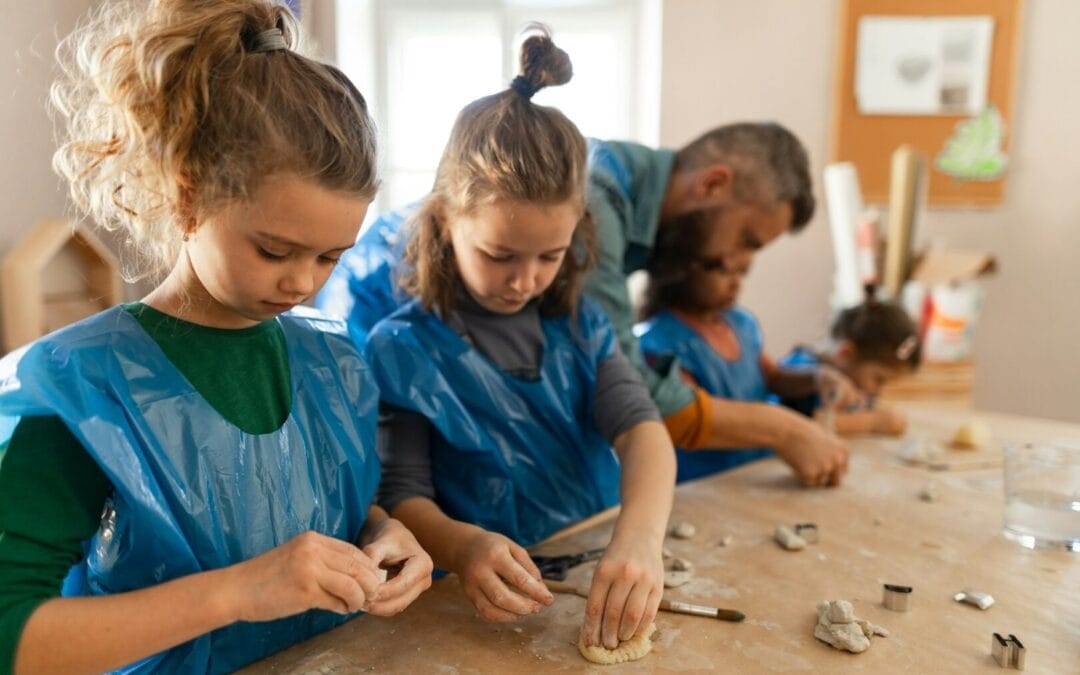Social skills are an important part of every child’s development. They help children communicate, build friendships, and understand social norms. For kids ages 5-10, learning these skills can be both exciting and challenging. One effective way to support their growth in this area is through peer socialization groups.
Peer socialization groups bring children together to interact, play, and learn from each other. These groups create a safe and structured environment where kids can practice their social skills. By engaging in group activities, children can improve their ability to cooperate, share, and resolve conflicts. The experiences they gain in these groups help them navigate social situations both in school and in their daily lives.
Understanding how peer socialization groups work and the benefits they offer is key for parents and educators. These groups provide an opportunity for kids to grow socially and emotionally. Through guided interactions, children learn to express themselves, listen to others, and develop empathy. As they build these skills, they become more confident and better prepared for the future.
Understanding Peer Socialization Groups for Ages 5-10
Peer socialization groups are designed to help children ages 5-10 practice and enhance their social skills through structured interactions. These groups usually consist of a small number of peers and are led by a skilled facilitator who guides activities and discussions. The goal is to create a supportive environment where children feel comfortable exploring and practicing new social behaviors.
Children in this age group are at a critical stage for learning how to interact with others. They are becoming more aware of their own emotions and are beginning to understand the feelings of others. Peer socialization groups provide a safe space for kids to experiment with social roles, take turns, and learn about cooperation. Through regular attendance, children can make significant progress in understanding social norms and developing positive relationships.
These groups often meet weekly and include a mix of structured activities and free play. Activities are carefully chosen to target specific social skills, such as sharing, listening, and taking turns. The facilitator also models appropriate behavior and provides immediate feedback to help children recognize and correct social missteps. This hands-on approach is very effective in promoting social development in young children.
Key Social Skills Developed Through Peer Socialization
Peer socialization groups focus on several key social skills that are essential for young children’s development. Here are some of the primary skills that these groups aim to nurture:
1. Communication: Learning to express thoughts and feelings clearly and respectfully is vital. Children practice using words to convey their needs and listen to others attentively.
2. Cooperation: Group activities encourage working together toward a common goal. Kids learn to compromise, share resources, and help each other.
3. Empathy: Understanding and responding to others’ emotions is a crucial part of social interaction. Facilitators use role-play and discussion to teach children how to recognize and respect the feelings of their peers.
4. Conflict Resolution: Kids learn methods to resolve disagreements peacefully. They practice using words instead of physical actions to sort out differences.
5. Self-Regulation: Managing one’s own emotions and behaviors is another key skill. Activities are designed to help children recognize their emotions and develop strategies to control impulses.
By focusing on these core skills, peer socialization groups help children build a strong foundation for future social interactions. The abilities they develop will assist them in forming meaningful relationships, both now and as they grow older. Whether in school, at home, or in the community, these social skills are crucial for successful interactions and personal growth.
Activities and Exercises in Peer Socialization Groups
Peer socialization groups offer a variety of activities and exercises designed to boost children’s social skills. These activities are both fun and educational, ensuring that children remain engaged while learning.
Role-Playing Games: Role-playing allows kids to practice real-life scenarios in a controlled environment. They might act out common situations like asking to join in a game, resolving a conflict, or sharing toys. This teaching method helps them understand different perspectives and responses.
Group Projects: Tasks that require collaboration teach children to work together. These projects can include building something with blocks, creating a group art piece, or playing a team sport. Such activities help kids understand the importance of teamwork and sharing.
Storytime and Discussions: Reading a story followed by a discussion helps children think about social concepts and moral choices. After the story, facilitators ask questions to prompt kids to think about the characters’ actions and emotions, fostering empathy and understanding.
Games and Play: Structured games like “Simon Says” or “Duck, Duck, Goose” are more than just fun—they teach kids to follow rules, take turns, and pay attention to others. These activities provide a playful yet structured way to practice social skills.
By incorporating a mix of activities, peer socialization groups ensure all children find something they enjoy while learning essential skills. This variety keeps sessions dynamic and effective for skill development.
Benefits of Peer Socialization for Long-Term Development
The benefits of peer socialization extend well beyond immediate skill acquisition. These groups lay the groundwork for long-term social and emotional growth, impacting various aspects of a child’s life.
Improved Social Relationships: Kids who participate in peer socialization groups often form stronger friendships. They learn how to interact positively, making it easier to build and maintain relationships. These skills are crucial in school settings where teamwork and collaboration are part of daily activities.
Emotional Resilience: Navigating social interactions successfully helps build emotional resilience. Children learn to handle minor conflicts, setbacks, and misunderstandings, which prepares them for more complex social situations in the future.
Academic Success: Social skills are linked to better academic performance. Children who can focus, follow instructions, and work well with others tend to excel in school. These skills are essential for group projects and classroom participation.
Self-Confidence: Mastering social skills gives children a sense of accomplishment and boosts their self-esteem. Confident children are more likely to engage in new activities, take on challenges, and persist in the face of difficulties.
Overall, the experiences children gain from peer socialization groups provide a solid foundation for tackling various challenges as they grow. The skills learned in these groups support their journey toward becoming well-rounded individuals.
Conclusion
Peer socialization groups play a crucial role in helping children ages 5-10 develop essential social skills. Through structured activities and guided interactions, kids learn to communicate effectively, cooperate with peers, and manage their emotions. These skills are vital for their immediate social interactions and long-term development.
Understanding the specific benefits of these groups helps parents and educators support children’s growth more effectively. From building stronger friendships to achieving academic success, the positive impact of peer socialization extends into many areas of a child’s life.
At Watch Me Shine, we are committed to fostering your child’s social development. Contact us today to learn how our peer socialization programs can help your child build the skills they need to thrive. Start their journey to becoming confident and socially adept with Watch Me Shine!

